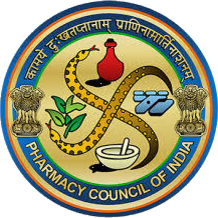Roshni Nathwani
A bench comprising Justices BR Gavai and PS Narasimha said that while the public interest may necessitate restrictions to prevent institutions from mushrooming, the law must strictly implement them.
The Pharmacy Council of India’s (PCI) decision to impose a five-year moratorium on new institutions was ruled to have violated the Constitution’s Article 19(1)(g) right to the establishment of educational institutions, according to the Supreme Court’s ruling on Thursday.
BACKGROUND OF THE CASE
In an order dated 17th July 2019, the Pharmacy Council of India (PCI) decided to ban new pharmacy institutions that provide both diploma and degree programs in pharmacy for five years commencing with the 2020–21 academic year. The resolution was then changed on 9th September 2019, among other things, to ease the ban for government institutions, institutions in the North Eastern area, and States and Union Territories with less than 50 institutes providing D. Pharm and B. Pharm courses combined.
In April, the Chhattisgarh High Court annulled two PCI rulings that had put a five-year halt on the founding of new pharmacy institutions. The right to establish, operate, and administer an educational institution is a fundamental right. It may only be restricted by a law that complies with the requirements of Article 13(3)(a) of the Constitution, according to Justice P. Sam Koshy. Similar actions were taken in March by the Delhi High Court. Without addressing whether such notifications violated the PCI Act, Justice Prateek Jalan held that such regulatory judgments with broad implications for citizens require scientific investigation and accompanying facts.
The Karnataka High Court also issued a similar decree in November.
After citing several precedents, the bench stated, “… although there is a fundamental right to construct educational institutions, the same can be subject to legitimate constraints, which are judged appropriate in the broad public interest. But whether or not executive orders can accomplish this is the question that has to be addressed.”
The top court also emphasized that the rights of citizens could not be violated by executive action, citing the Supreme Court’s rulings in the State of Bihar and others vs. Project Uchcha Vidya and State of MP vs. Thakur Bharat Singh.
In light of this, the Court concluded that an executive order could not have imposed a broad ban as the PCI did. It was noted that the freedom for the competent authorities to provide or refuse the same no-objection certifications as may be necessary did not come with the right to have an educational institution recognized or connected.
Click here to access the copy of the judgment.
Case Title: Pharmacy Council of India v. Rajeev College of Pharmacy & Ors.
Citation: Civil Appeal No. 6881 of 2022 [@ Special Leave to Appeal (C) No(s). 19671/2021]


